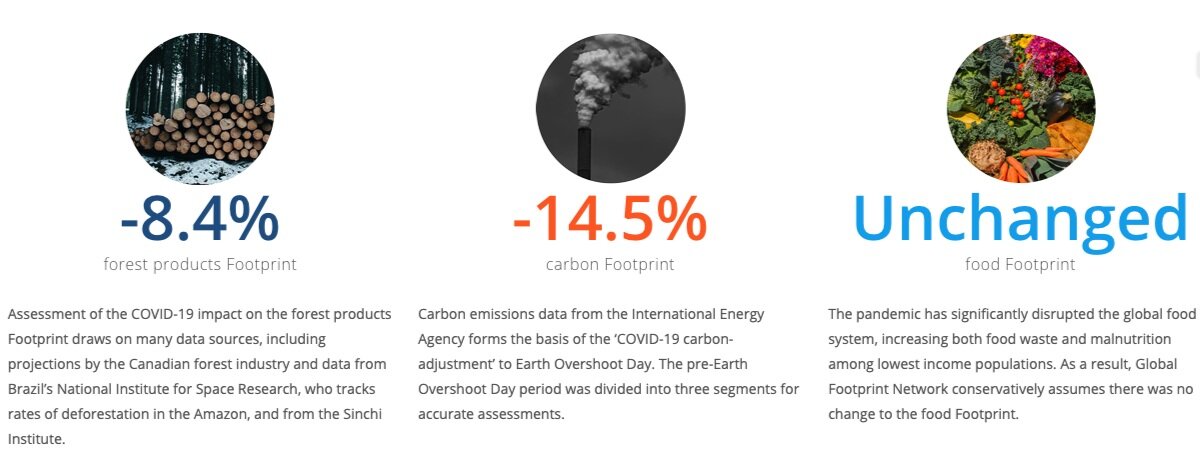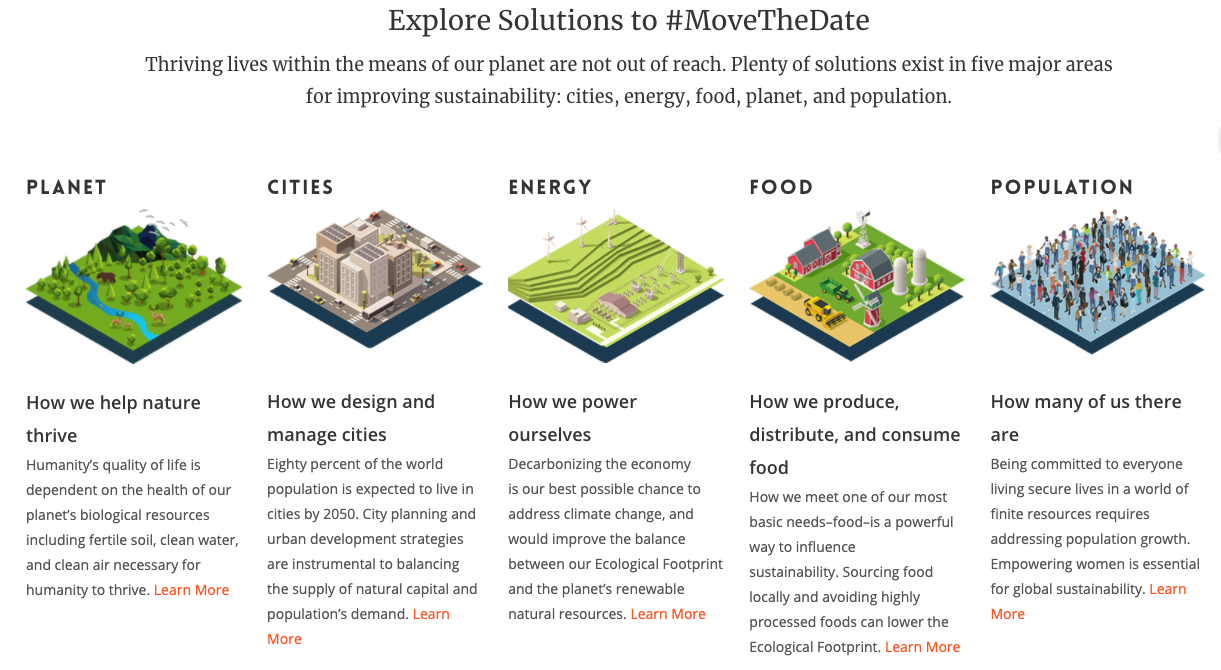Earth Overshoot Day
Every year the Global Footprint Network marks on the calendar a date that signifies the day we have collectively used up all the resources allocated for that year. It’s called Earth Overshoot Day, and in 2020, it falls on the 22nd of August. This is actually much better than 2019’s date, which was the 29th of July. This shift in a more sustainable direction is mainly due to the economic slow down as a result of the Covid-19 pandemic.
Adapted from Earth Overshoot Day, last year we were a month behind this year.
The Global Footprint Network combines the most reliable data available and forms a set of reasonable assumptions to assess the current resource use of humanity. They look at changes in carbon emissions, harvesting of forest products, food production and fossil fuel demand, along with other factors that have an impact on global biocapacity. The research team concluded that this year, as a result of the global pandemic, there has been a 9.3% reduction in the global Ecological Footprint compared to the same period last year, as reported on the Earth Overshoot Day website.
“The novel coronavirus pandemic has caused humanity’s ecological footprint to contract. However, true sustainability that allows all to thrive on Earth can only be achieved by design, not disaster.” - Earth Overshoot Day
The changes reported by the World Footprint Network as a result of changes to the economy from the Covid-19 pandemic
Your Ecological Footprint
Earth Overshoot Day brings awareness to one of the main issues that sustainability is seeking to address: we collectively consume more than the Earth can provide us with. Everything comes from nature, and the planet provides us with an abundance of resources, from minerals to shelter and food.
But since the early 1980s, we started to extract and use more resources at a rate faster than the Earth can replenish them each year. This means we are eating into future generations resources and creating a deficit. Thus we need to find creative ways of meeting our human needs, living prosperous lives, but whilst maintaining and respecting the life support systems that sustain life on Earth.
The ecological footprint methodology is a tool that helps individuals, cities, countries, and the entire world understand how big an impact they have on the one planet we all share. The eco footprint method looks at many 'impact categories', which are areas of our daily lives that have impacts on the planet and then provides a calculation of how many earths would be required if everyone lived your lifestyle. So the place you live, the types of things you consume - these all impact the size of your personal ecological footprint.
In part inspired by the ecological footprint concept, last year in collaboration with the United Nations Environment Programme, we came up with the Anatomy of Action - a set of actions everyone, anywhere, can take to live a more sustainable lifestyle. Using the hand as a memorable reference for the actions we each take in our lives, we can opt to reduce our footprint by making more effective lifestyle choices that reduce the impact of our actions.
Move the date
Each year there is a campaign is to #movethedate for Earth Overshoot Day so we can get back in line with the Earth’s ability to sustain us. The last time this was the case was in the late 1970’s, so we need to collectively move the date back to December 31st, so that we are living within the carrying capacity of the planet.
In honor of Earth Overshoot Day, we challenge you to measure your own ecological footprint and see what kind of present impacts your lifestyle is having on the planet.
From the Earth Overshoot Day website, the lifestyle areas that we can change to help #movethedate
Did you know that currently, we need 1.6 planets to sustain the consumption and lifestyle choices of all the humans alive today!? “From 1961 to 2010, Ecological Footprint accounts indicate that human demand for renewable resources and ecological services increased by nearly 140% “ says a report on our growing ecological footprint.
This is our collective impact, but what is your individual footprint? Click on the image below to do the calculation and see! Then check out the Anatomy of Action to find ways you can reduce your impact and help design a more sustainable future.
Lets take action!
At the UnSchool we are all about agentzing people to help design a future that works better than today, we have classes, handbooks, toolkits, advanced learning tracks and masterclasses all on activating systems change for a sustainable and circular future.
As for the gift, to celebrate Earth Overshoot Day being moved back nearly a month this year, we’re having a 24-hour, 50% off Flash Sale on everything* at UnSchools Online, on this Saturday, 22 August!
Use the code MOVETHEDATE when you checkout, and get 50% off anything in our extensive online learning hub.
Help #MoveTheDate by activating your agency and contributing to making positive change with tools on sustainability, systems thinking, creative problem solving, and more at UnSchools Online!
*for certification tracks this applies to the first month only














